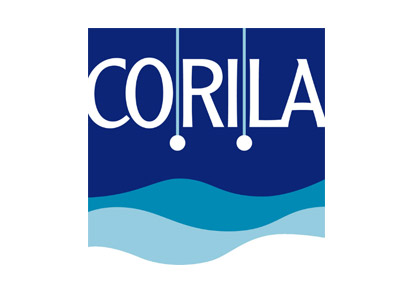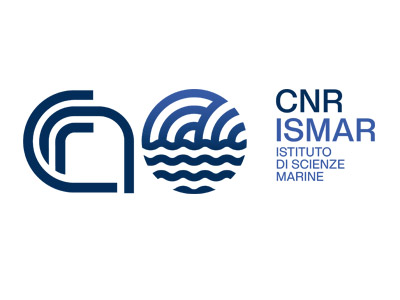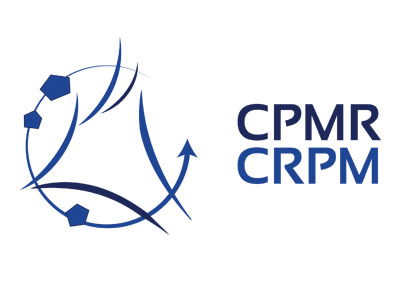Policy briefs
REGINA-MSP policy briefs series
N° 1 Regions and Maritime Spatial planning: what is at stake?
Coastal Regions are key players for maritime and coastal policies, but how do they participate in and benefit from national Maritime Spatial Planning?
Regional authorities have a central role to play in the implementation of the European Union’s Cohesion Policy, and Maritime and Coastal Regions are key players in applying maritime and coastal policies. They are directly concerned by several European Green Deal objectives, socio-economic development issues and environmental policies, and they can manage specific European funds for these purposes. Additionally, they have key competencies and responsibilities in coastal and marine management, which vary from country to country, including, for example, land-use planning, harbour management, economic development and training. These are inherently linked to Maritime Spatial Planning. Coastal Regions are also pivotal actors in the implementation of Integrated Coastal (Zone) Management (IC(Z)M) which is crucial to anchor Maritime Spatial Planning to the land and address the land-sea interface. Depending on the national context and legislation, Regions are directly involved in implementing national Maritime Spatial Planning. Regions are also actors in collecting data and organizing their availability. Regional spatial data for Maritime Spatial Planning can provide accurate regional and local information for national plans. The interactive map developed by Shom (naval French hydrographic and oceanographic service) to index the main regional and national geoportals containing data relevant for Maritime Spatial Planning in the 8 REGINA-MSP case study Regions illustrates this fact.
Maritime Spatial Planning in the Regions at a glance
Among the Member States of the European Union, the role of Regions in Maritime Spatial Planning is quite diverse. Most often, Regions are officially involved in the preparation of the national plans, and certain responsibilities may overlap when it comes to land planning or the implementation of policies which are mutually dependent on Maritime Spatial Planning. Exceptions to this do exist with a decentralised approach: in Finland, maritime spatial plans are under the full responsibility of Regions, even in the Exclusive Economic Zone (EEZ); in Italy, coastal Regions are recognised by law as active players in the Maritime Spatial Planning process, together with the Ministries competent for various sectors; and in Germany a distinction is made between federal planning in the EEZ and regional planning in the territorial sea.
A survey based on 36 replies from 12 different countries
According to the findings from the survey, more than half of the respondents were of the opinion that Regions were not fully involved in national Maritime Spatial Planning. Nevertheless, some respondents pointed out that Maritime Spatial Planning helped to raise regional awareness and interest in maritime issues. The widespread focus on increasing development of offshore renewable energy undoubtedly boosted concerns relating to planning and decision-making in marine locations.Areas or Other Effective Area-based Conservation Measures was also clearly acknowledged by survey respondents and in the analysis of the eight case study regions considered by the project. Experiences from both studies demonstrate that Maritime Spatial Planning offers (or is expected to offer) a wide range of opportunities to strengthen environmental protection and ecosystems restoration.
Potential support to Integrated Coastal Zone Management
Another positive finding from the survey is that respondents were of the opinion that Maritime Spatial Planning could potentially support Integrated Coastal Zone Management, by incorporating land-sea interactions and the objectives of existing plans developed by regional authorities and providing measures to address conflicts of uses and cross-border issues. On the contrary, the European Green Deal was not clearly identified as a major driver from a regional point of view: processes at regional and local levels are not wholly suited to connect its ambitious goals with operational realities. Finally, the survey exposed a limitation with respect to engagement indicating that hardly any public awareness events with an explicit or implicit link to Maritime Spatial Planning were organised at regional levels.
Multi-scale approach: do planning documents at different levels interact effectively?
A multi-scale governance approach is recognised as necessary to deal with the relevant scales associated with activities and environmental features, regional and local scales being particularly essential in the coastal zone for activities like aquaculture or coastal and maritime tourism for example. National Maritime Spatial Planning cannot capture all scales and therefore needs to be implemented at regional and local levels. In this way, it can better address local and regional specificities.The analysis conducted in the eight case study regions on the linkages between national and regional planning (E. Ramieri, M. Bocci (Eds.) et al., 2024) reveals that even in some cases, when regional plans seem fully consistent with the national ones, challenges such as a lack of integration of regional and local plans/strategies into Maritime Spatial Planning and a concerted approach to address conflicts of uses still exist.
Legally binding documents are mainly local plans for marine protected areas & land-use planning
The average number of plans and programmes analysed in the case study regions that are likely to interact with Maritime Spatial Planning at national, regional and local level is around 18. 20% are national documents and the rest is equally composed of regional and local documents. Nevertheless, looking only at legally binding documents, the proportion of local documents is much higher : Marine Protected Areas and land-planning related documents are mainly responsible for this result.
Possible limits and barriers identified in the REGINA-MSP survey and case study analysis
The availability of resources in regional and local administrations is considered as insufficient to tackle maritime issues, in particular when dealing with the Maritime Spatial Planning integrated perspective. Human resources in terms of skills, time and budget are necessary; yet the analysis reveals that they are often lacking. At the same time, concerns relating to enabling a sustainable blue economy and protecting the marine environment are rising, as well as local conflicts emerging from increasing sea uses. The political willingness is often there.
National issues are often perceived as far removed from regional and local concerns
Divergences in priorities between national and regional levels are among the limits and barriers for better compatibility and complementarity between national Maritime Spatial Planning and regional and local plans. They could result from gaps in coordination, either because the legal framework does not make provision for it, or because of a lack of resources at regional level which limits the ability of the Region to participate fully in the national process.
This is more pronounced at the local level where effective involvement of local administrative organisations (departments, municipalities, etc.) and local stakeholders (such as economic operators from locally relevant sectors, NGO members, the general public, etc.) is even more limited, although it has a central role in the implementation of actions. National issues are often perceived as far removed from regional and local concerns. Compared to Maritime Spatial Planning, regional and local actors have been more efficiently engaged in the elaboration of some cross-cutting and sector-based plans that have a marked regional or local dimension (e.g. regional landscape plans, management plans for marine protected areas or Natura 2000 sites, plans for the definition of Allocated Zones for Aquaculture, water management plans, Bay Contracts, etc.).
Data gaps and under-represented stakeholders
In addition, stakeholders and sectors not prioritised in international and European Union legislation are identified as being under-represented or insufficiently involved in Maritime Spatial Planning. These include coastal communities, artisanal and recreational fishing, nautical activities, aquaculture, environmental and cultural heritage sectors, for example.
There is often a lack of locally relevant data and knowledge about the spatial dimension of some sectors: this relates, for example, to small-scale fisheries, recreational fishing, leisure boating, preservation and valorisation of cultural heritage sites, specific environmental components as for example detailed mapping of benthic habitats. Socio-economic data at the sub-regional scale on maritime uses are also of great importance for decision making within Maritime Spatial Planning. Some uses are generally well characterised from a socio-economic perspective (e.g. aquaculture and commercial fisheries); while for other uses data are quite fragmented (e.g. tourism or recreational boating), requiring dedicated studies. Data requirements include the mapping and evaluation of locally-relevant land-sea interactions, such as coastal erosion, flooding, pollution or the various interactions between coastal urbanised areas and the marine environment. However, there are still obstacles to regional data collection. Among others, communication barriers between central and regional institutions, as well as within organizations and sectors, are hampering progress. Another well-identified obstacle concerns the updating of spatial data, whatever the geographical scale.
Climate change belongs to the category of global concerns difficult to apprehend at local level
Finally, climate change belongs to the category of global concerns difficult to apprehend at local level, without high resolution models and tools showcasing and informing planning and management actions at the regional and local scale.
How can regional implementation of Maritime Spatial Planning be improved?
In line with the barriers, limits and gaps identified regarding the proper implementation of Maritime Spatial Planning at regional and local levels, involving all stakeholders and enabling a multi-scale coordinated approach, REGINA-MSP explores the development of relevant recommendations at regional, national and European levels. General ideas under study and discussion at European, national and regional levels, considering the specificities of the different national and regional situations, are the following:
Legal framework
- Explore if and how the competencies of the Regions could be expanded to enable implementation autonomy for waters of regional interest
- Look into how the competencies of coastal communities could extend into the territorial sea
- Investigate if collaborative approaches which support "joint management" and "shared management" could be established between central and regional governments
Multilevel governance and stakeholder engagement
- Advance Maritime Spatial Planning implementation at both regional and national levels, through emphasising the need for collaborative, inclusive, and well-coordinated planning efforts
- Continuous monitoring and evaluation processes improvements
- Addressing data-related challenges
- Considering stakeholders and sectoral engagement with a focus on involving regional and local actors and encouraging public participation in Maritime Spatial Planning processes
- Better support and involve regional authorities in governance and decision-making processes
- Develop regional communities of practice among experts and stakeholders
- Promote regional strategies and action plans for ocean literacy
Resources, capacity, skills and professional networks for national, regional and local authorities
- Support inter- and intra- administrative coordination and cooperation, including exchanges at multiple levels
- Set up interregional communities of practice between technical personnel from the different authorities concerned and experts, networking at European level
- Develop training programmes to train officials responsible for other marine activities to help deliver more cohesive marine planning
- Identify appropriate funding sources to realise training and career development opportunities for those with marine remits
- Financial resources, e.g. fiscal resources dedicated to Maritime Spatial Planning and its enforcement at regional and local level
- Human resources
- Institutions: coordination, grouping
Data
- Develop data collection and ensure its availability to meet the need for uniform planning evidence
- Emphasise on monitoring and evaluation of plans to ensure alignment with national and regional priorities, and include indicators grids for environmental, social and economic monitoring (strong link with governance)
- Develop and maintain Maritime Spatial Planning geodatabases to better address regional and local scales.
Quoting this policy brief:
O. Laroussinie, A.-M. O’Hagan, E. Ramieri, M. Bocci, L. Guennal, E. Delaroche, F. Châles, C. Cervera-Núñez, April 2024. Regions and Maritime Spatial Planning: what is at stake? REGINA-MSP project, European Climate, Infrastructure and Environment Executive Agency.
Quoting the survey at European level:
E. Andreoli, J. Brossard, C. Castellani, L. Guennal, Z. Kyriazi, A. M. O’Hagan, G. Sciacca, C. Jacob, O. Laroussinie, 2024. Baseline assessment on national and regional implementation of MSP and gap analysis. REGINA-MSP project, European Climate, Infrastructure and Environment Executive Agency.
Quoting the in-depth analysis of Marine Spatial Planning implementation in 8 case study regions:
E. Ramieri, M. Bocci (Eds.) et al., 2024. Regional analysis report: results of the analysis of strategies and plans available at the regional level. REGINA-MSP project, European Climate, Infrastructure and Environment Executive Agency.
N° 2 Final policy brief
Policy impact
REGINA-MSP studied the role of Regions (NUTS2) in maritime spatial planning, providing an overview at European level as well as precise state of play in 8 regional case studies. Barriers and levers identified, compendium of regional experiences, activities implemented in terms of ocean literacy and training, and final policy recommendations are direct contributions to the integrated maritime policy and the Cohesion policy of the EU, having the EU Green deal targets in mind. Proposals concern notably elements to incorporate in the Maritime Spatial Planning European Directive, principles for improved governance and data acquisition and sharing, and a roadmap for a cross-regional community of practice.
Impact for citizens and communities
Maritime spatial planning is implemented at national level, but concerns organisation in space and time of activities and environmental measures that will affect people at local level, which is difficult to capture at this broad scale. REGINA-MSP explored how a better involvement of regions and local authorities in MSP processes could help a better consideration for local stakes. It includes land-sea interactions, particularly sensitive for local people. It suggested varied governance solutions, taking into account the diversity of national context. It also suggested relying on local authorities to maintain contact with the general public and delivered a framework for developing a regional ocean literacy strategy.
Impact for companies and businesses
Numerous plans and strategies influencing companies and businesses at regional and local level are interacting with maritime spatial planning. REGINA-MSP gave evidence of the necessity of a better coordination in order to give a more consistent and efficient framework for activities at sea. Offshore renewable energies, aquaculture and tourism for example require the right planning scale and adequacy with the relative landplaning. Stakeholders’ participation appeared also partial when organised by national authorities, missing regional specificities and ignoring least heard stakeholders like small-scale fisheries or local tourism operators. Proposals ask therefore investing regions with stakeholders’ involvement mission and advancing MSP implementation at both regional and local levels.
Barriers and future needs
Maritime Spatial planning is quite new: the legal framework is not yet complete, nor all regions are aware of what is at stake. Recognising and clarifying the role of Regions in the elaboration, decision-process and implementation of MSP is the main barrier identified. Recommendations relate also to the necessary resources, skills, capacity and networks of public authorities staff. Data acquisition and sharing are also a key issue for a plainly informed process.
Gaps also refer to the limited stakeholder engagement in MSP at regional and local levels and the need to create new mechanisms to facilitate communication between all stakeholders and the co-design of actions and plans.
Conclusion
REGINA-MSP highlights the role regions could play for enhancing cross-border cooperation in the implementation of maritime spatial planning, pointing out that they are sharing issues between neighbouring regions and have the capacity of funding actions, notably through the Interreg programmes.
REGINA-MSP proposed tailored actions for each of its eight case study regions and their specificities: Mayo County, Pays de la Loire, Provence-Alpes-Côte-d’Azur, Galicia, Murcia, Sardinia, Central Macedonia and Crete.
It provided insights and food for thoughts to the Conference of Peripheral Maritime Regions (CPMR), which issued a policy paper, consisted of a series of policy proposals from the regions part of the CPMR, targeting EU institutions.
Finally it is worth mentioning the elaboration of a roadmap for a cross-regional community of practice for engaging regional authorities and experts across EU (and eventually non-EU) countries, to facilitate experience and knowledge sharing and the discussion around common MSP challenges.













